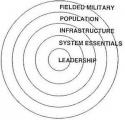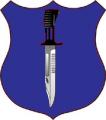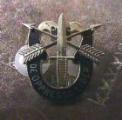Jeeez....cant leave you guys alone for a minute.
As I have said many time Crimes and Wars are caused by people! They are not caused by natural phenomenon like a hurricane or earth quake. So when you analyze the Crime or War you get a list of people and property.....Targets that you can use force against in order to obtain an end to the crime or an end to the war. Choosing (Targeting) which persons or property to use force against is Strategy. And should go from the highest level to the lowest level like CvC said.... there is no level of Strategy, it always present or at least it should. My 2.5 cents anyway.



 Reply With Quote
Reply With Quote












Bookmarks